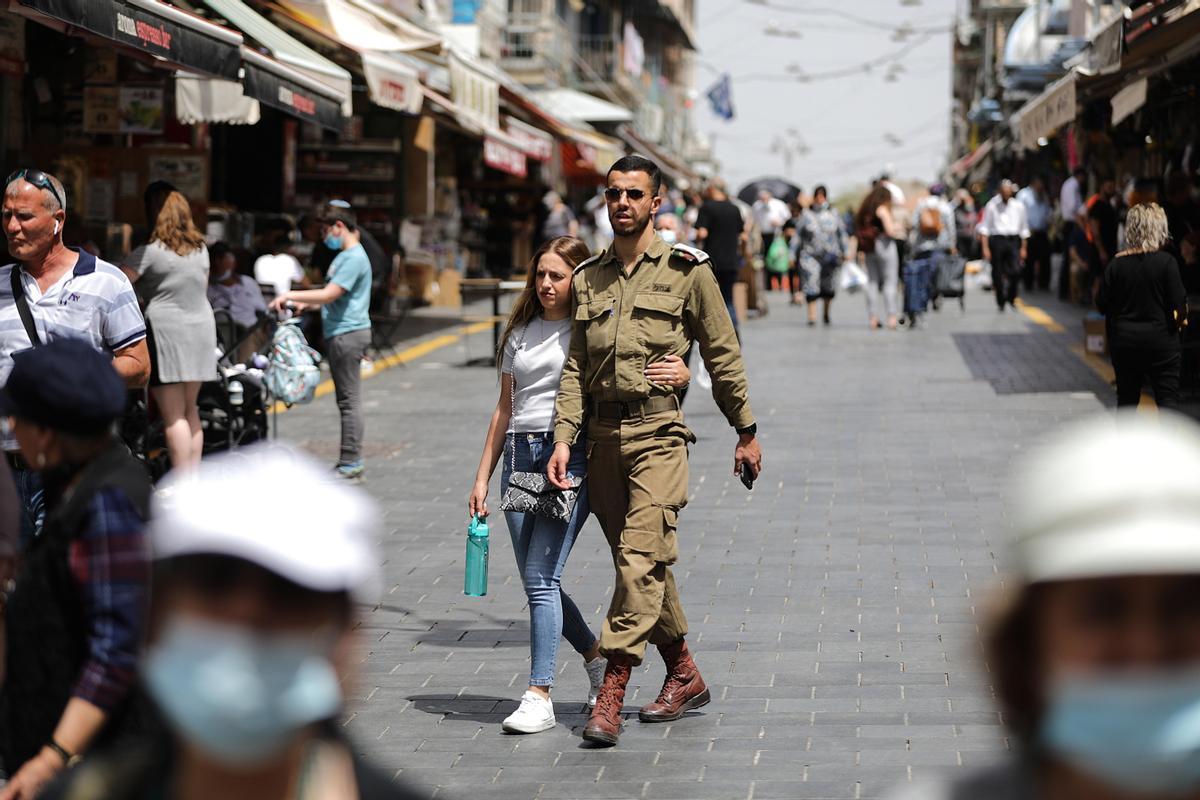For a year, Israelis could not leave home without a mask . But this Sunday, Israel has decided that citizens can stop having to take it abroad. Jerusalem, Sunday at 09:00. At the junction of Jaffa and King Georges streets, several passengers exit the coaches and tram and remove their masks as they set foot on the street. Inside the transports its use is obligatory but outside, outdoors, no longer. Eliana Gamulka, blonde and blue-eyed, gets off the bus and ties her yellow mask to her right wrist. A simple gesture but one that had been illegal for a year.
“On the bus I wore the mask, most of the people wore it, and then I took it off […] I’m relieved, we can live again,” says Eliana, a 26-year-old project manager, happy because the Measure has gone into effect two weeks before your wedding. “We can all celebrate it without a mask and the photos will be beautiful!” The bad part, Eliana jokes, is that “you can no longer pretend that you don’t know someone on the street.” Other passengers, on the other hand, prefer to keep the mask on when leaving the bus, or leave it at the level of the chin to be able to quickly put it on when entering a store. Ester Malka, “used” to wearing a mask, prefers to wait before taking it off in the street.
“I’m still scared […] We’ll see what happens when everyone has removed their mask. If I see that everything is fine in a month or two, then I’ll take it off,” explains the office worker. The country was able to take this step, on Thursday night, thanks to an intense vaccination campaign, facilitated by an agreement signed between the state and the pharmaceutical giant Pfizer. In exchange for quick access to millions of doses of the vaccine, Israel provided Pfizer with real data on the effect of vaccination. In Israel, the population’s medical data is digitized.
Since December, almost five million Israelis (53% of the population) received the two doses of the vaccine, that is, 80% of the population over 20 years old, according to the country’s official data released this week. The balance is 836,000 cases of covid-19 and more than 6,300 deaths during the pandemic. In January, Israel registered a peak of 10,000 daily cases despite the vaccination campaign, as the effects of the immunizer do not begin to be felt until a few weeks after the injection.
From that moment, the curve began to bend, so the authorities allowed the reopening of bars, restaurants and cafes in early March. In recent days, the country has only registered about 200 cases a day. “There is no better publicity for Pfizer,” jokingly says Shalom Yatzkan, a computer scientist in his 40s, who caught covid-19. “I was sick for three days, my neck hurt, I felt weak […] but this is a victory,” he says, happy, and hopeful that “the variants will not catch up with us.”

